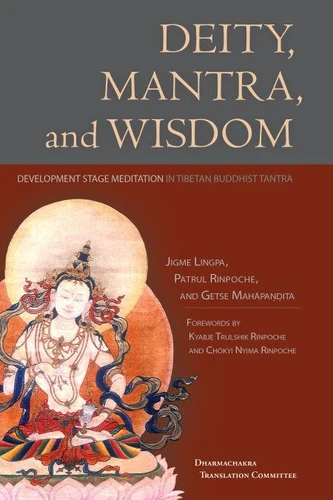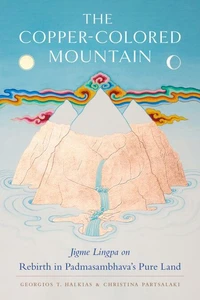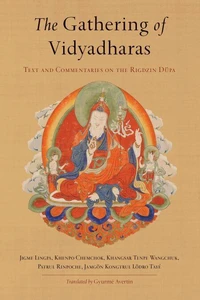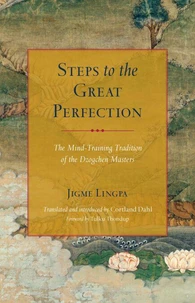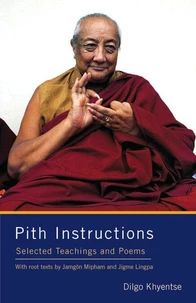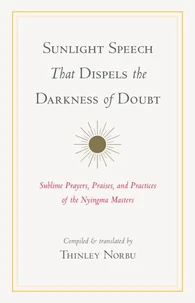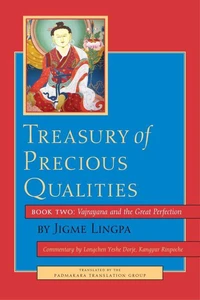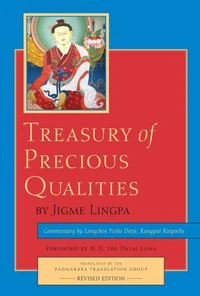Deity, Mantra, and Wisdom. Development Stage Meditation in Tibetan Buddhist Tantra
Par : , ,Formats :
Disponible dans votre compte client Decitre ou Furet du Nord dès validation de votre commande. Le format ePub protégé est :
- Compatible avec une lecture sur My Vivlio (smartphone, tablette, ordinateur)
- Compatible avec une lecture sur liseuses Vivlio
- Pour les liseuses autres que Vivlio, vous devez utiliser le logiciel Adobe Digital Edition. Non compatible avec la lecture sur les liseuses Kindle, Remarkable et Sony
- Non compatible avec un achat hors France métropolitaine
 , qui est-ce ?
, qui est-ce ?Notre partenaire de plateforme de lecture numérique où vous retrouverez l'ensemble de vos ebooks gratuitement
Pour en savoir plus sur nos ebooks, consultez notre aide en ligne ici
- Nombre de pages264
- FormatePub
- ISBN978-0-8348-4265-6
- EAN9780834842656
- Date de parution25/02/2020
- Protection num.Adobe DRM
- Taille3 Mo
- Infos supplémentairesepub
- ÉditeurSnow Lion
Résumé
Deity, Mantra, and Wisdom contains four of the most cherished Tibetan Buddhist commentaries on the practices of visualization, mantra recitation, and meditative absorption. These three elements form the core of development stage meditation, one of the most important practices of Buddhist Tantra. The authors of these timeless classics-Jigme Lingpa, Patrul Rinpoche, and Getse Mahapandita-have all profoundly shaped Tibetan Buddhism with their vast scholarship and deep spiritual realization.
In these eloquent and inspiring writings, they explain the fundamental philosophy of the development stage, showing not only its profound insights into the nature of reality, but also how to make this view a living experience through the practice of meditation. The four works here translated for the first time are: "Ladder to Akanistha" by Jigme Lingpa, "Clarifying the Difficult Points in the Development Stage" by Patrul Rinpoche, "The Four Stakes That Bind the Life-Force" by Patrul Rinpoche, and "Husks of Unity" by Getse Mahapandita Tsewang Chokdrub.
In these eloquent and inspiring writings, they explain the fundamental philosophy of the development stage, showing not only its profound insights into the nature of reality, but also how to make this view a living experience through the practice of meditation. The four works here translated for the first time are: "Ladder to Akanistha" by Jigme Lingpa, "Clarifying the Difficult Points in the Development Stage" by Patrul Rinpoche, "The Four Stakes That Bind the Life-Force" by Patrul Rinpoche, and "Husks of Unity" by Getse Mahapandita Tsewang Chokdrub.
Deity, Mantra, and Wisdom contains four of the most cherished Tibetan Buddhist commentaries on the practices of visualization, mantra recitation, and meditative absorption. These three elements form the core of development stage meditation, one of the most important practices of Buddhist Tantra. The authors of these timeless classics-Jigme Lingpa, Patrul Rinpoche, and Getse Mahapandita-have all profoundly shaped Tibetan Buddhism with their vast scholarship and deep spiritual realization.
In these eloquent and inspiring writings, they explain the fundamental philosophy of the development stage, showing not only its profound insights into the nature of reality, but also how to make this view a living experience through the practice of meditation. The four works here translated for the first time are: "Ladder to Akanistha" by Jigme Lingpa, "Clarifying the Difficult Points in the Development Stage" by Patrul Rinpoche, "The Four Stakes That Bind the Life-Force" by Patrul Rinpoche, and "Husks of Unity" by Getse Mahapandita Tsewang Chokdrub.
In these eloquent and inspiring writings, they explain the fundamental philosophy of the development stage, showing not only its profound insights into the nature of reality, but also how to make this view a living experience through the practice of meditation. The four works here translated for the first time are: "Ladder to Akanistha" by Jigme Lingpa, "Clarifying the Difficult Points in the Development Stage" by Patrul Rinpoche, "The Four Stakes That Bind the Life-Force" by Patrul Rinpoche, and "Husks of Unity" by Getse Mahapandita Tsewang Chokdrub.

